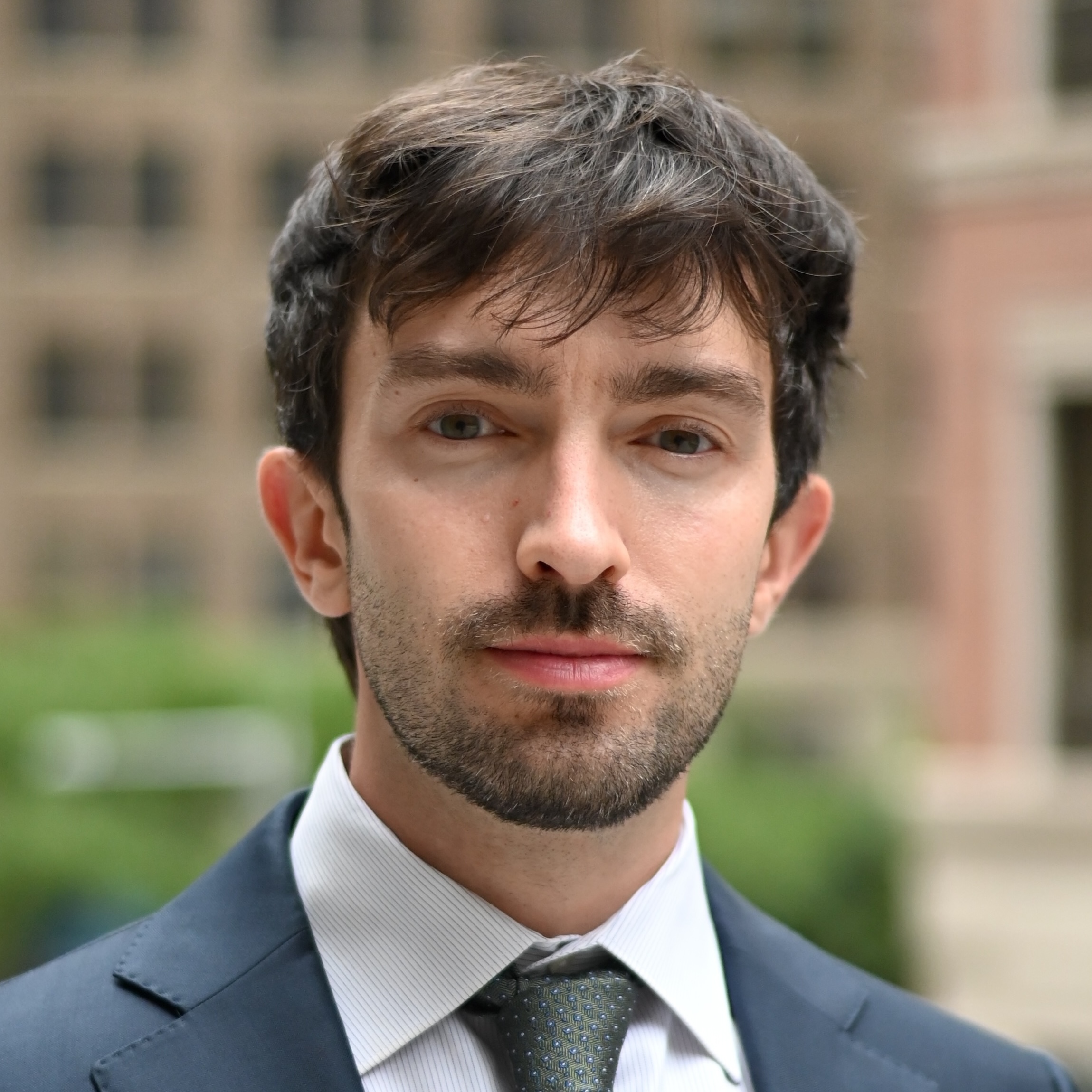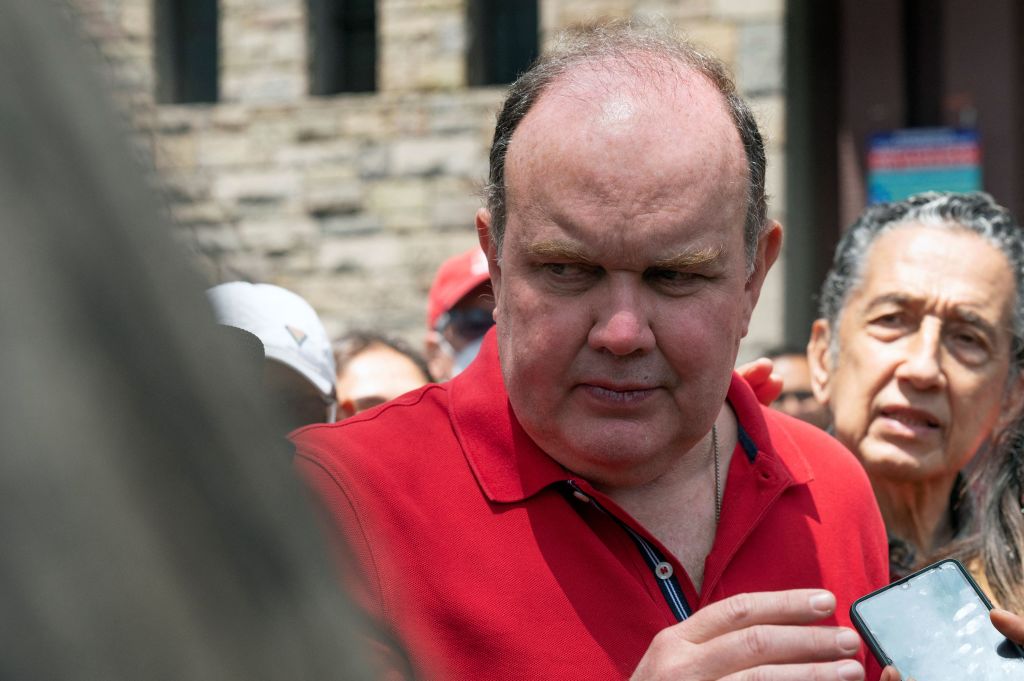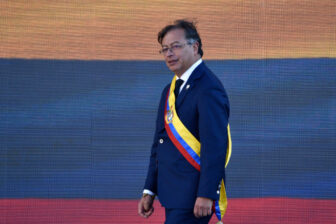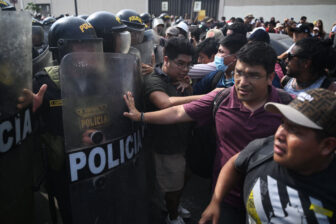This article was updated on October 6.
A right-wing populist who rails against “global communism” and “the new world order,” casts doubt on COVID-19 vaccines, and wants to put Jesus Christ “at the head of the executive, legislative, and judicial branch” just won a race to govern millions of South Americans.
No, it’s not Brazil’s Jair Bolsonaro—it’s Peruvian businessman Rafael López Aliaga, referred to as “Porky” for his porcine looks by supporters and critics alike, who is frequently likened to the Brazilian president for his far-right views (a comparison he rejects, calling Bolsonaro “extremely intolerant”). On Sunday, López Aliaga won Lima’s mayoral elections, setting him up to govern the city of over ten million—the third largest in the Americas, where one in three Peruvians lives—until 2026. Despite facing an investigation for alleged money laundering, López Aliaga beat out his nearest competitor, a center-right retired army general named Daniel Urresti charged by prosecutors with murdering a journalist, and ex-soccer star George Forsyth, who trailed further behind.
That a city as large and diverse as Lima chose the 60-year-old hotelier and adherent of the conservative Catholic sect, Opus Dei, might seem puzzling. Consider his views: He claims centrist ex-president Francisco Sagasti (2020-21), known for his technocratic piloting of Peru thorugh the worst of the COVID-19 pandemic, is a “terrorist” guilty of “genocide” and “turning Peruvians gay.” He’s also clashed with Peru’s independent electoral authorities and echoed unproven allegations of fraud in last year’s presidential elections made by defeated right-wing candidate Keiko Fujimori.
Still, it would be a mistake to see López Aliaga’s victory as a bizarre outlier. Rather, it underscores three undeniable trend lines in Peruvian politics—and more broadly, South America as a whole—that threaten to erode stable democratic governance.
Red flags
López Aliaga’s win, first of all, reflects surging polarization—but less among ordinary Peruvians than among the country’s fractious political class. He catapulted himself to victory by portraying himself as the anti-Castillo: a conservative businessman willing to lead increasingly radical opposition to Peru’s hapless president and push for his impeachment and exile. Castillo, a rural schoolteacher, nominally governs from the left, but it would be more accurate to say he hardly governs at all: Since taking office in 2021, he’s named a new cabinet minister, on average, once every six days. Now, Peru’s already sclerotic state is fraying at the edges.
López Aliaga’s message of no-holds-barred opposition to Castillo seems to have hit a nerve in middle- and upper-class neighborhoods of Central Lima, where he picked up the bulk of his votes. But while heavy on the vitriol, his campaign was short on policy specifics aside from vague intentions of triggering a “shock” of investment to make Lima a “world power.”
Realizing those ambitions—let alone tackling the day-to-day issues of crime and widespread hunger in the capital—will be a stretch. Lima mayors have limited authority, and must rely on close collaboration with government ministers, but López Aliaga’s hostility towards the Castillo government effectively rules this out. “Not only is he disinterested in governing and more interested in fighting with the executive; he’s biting the hand that could feed him, when it comes to public administration,” Peruvian political scientist Mauricio Zavaleta told AQ.
Second, López Aliaga’s win is a testament to how widespread voter apathy and a splintered party system is creating an opening for candidates at the far ends of the ideological spectrum who lack commitments to democratic norms. The fact that Castillo won office with the Marxist Free Peru party already supplied evidence that, so long as enough candidates divide the center-left and center-right vote, a candidate far from the political mainstream could win Peru’s highest office with only a small base of support.
López Aliaga’s win suggests the trend is here to stay. While he could call on grassroots evangelical and Catholic groups who share his hardline opposition to gender equality and rights for sexual minorities, his support was deeper than it was wide. López Aliaga won barely more than 26 percent of votes cast—the lowest share of any victor in four decades. Just one in eight limeños voted for him. Still, because half a dozen other candidates divvied up the remaining votes, that was enough to win.
Rather than a mass shift to the right, his victory shows that politicians who mobilize small but committed pockets of voters will likely continue to outperform expectations. Come Peru’s next presidential election in 2026—or possibly sooner, if Castillo is impeached—that could spell trouble, especially if we see hardline figures more politically savvy than Castillo or López Aliaga coming to the fore.
Last, the mayoral race signals that Peruvians may be growing resigned to government graft. López Aliaga built his fortune off murky privatizations during the authoritarian presidency of ex-President Alberto Fujimori (1990-2000), and since then, his career has been dogged by scandals, from $8 million in unpaid taxes and an open criminal investigation for allegedly skimming off the top of public contracts. Although his campaign trail rivals raised questions about the uncertain origins of his wealth, it didn’t create an insurmountable obstacle.
That’s a change from recent years, when Peruvians displayed a zero-tolerance approach. Thousands rallied to support prosecutors investigating the Lava Jato scandal in 2019 and applauded the impeachment of ex-President Vizcarra, which was tied to alleged corruption, even before prosecutors could formally file charges. (They still haven’t.) But since Castillo, a self-styled political outsider, took office only to face his own corruption investigations, Peruvians seem to be throwing up their hands. For Peru’s embattled but remarkably independent judiciary, the timing couldn’t be worse. If Peruvians’ anti-corruption zeal has indeed burned out, elected officials will face fewer checks on their malfeasance, corruption could become even more rampant and the judiciary’s hard-won gains towards strengthening the rule of law could be lost.
None of these problems—elite polarization, electoral openings for figures lacking democratic commitments or resignation to corruption—are new to Peru. Since the country’s return to democracy in 2000, one way or another, the country’s democratic institutions have always managed to overcome these challenges. But the mayoral race, and its political backdrop, shows how each one has intensified. Long-robust economic growth is slowing, a shortfall of fertilizer imported from Russia is evaporating farms’ yields and, in part as a consequence, one in two Peruvians now faces hunger.
The picture looks more and more like the 1980s, when economic crisis, political violence and polarization almost tipped the state towards collapse. Instead, they paved the way for Fujimori’s decade of competitive authoritarian rule. Maybe Peru’s institutions will pass this acid test. They’ve done it before. But López Aliaga’s win suggests it’s far too soon to say.
This article was updated to include an additional detail on López Aliaga’s reaction to being compared to Jair Bolsonaro.









